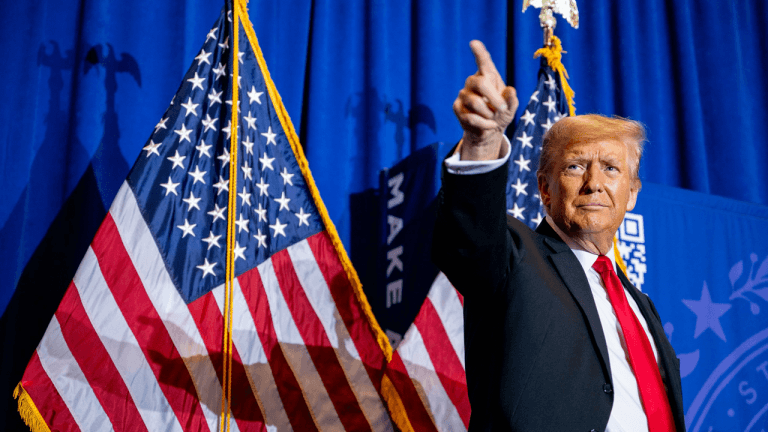
Crypto-friendly cities throughout the world report growth and innovation despite recent events.
The sudden failure of FTX has left many people questioning the impact this will have on the cryptocurrency ecosystem. For instance, it remains questionable whether or not crypto hotspots will continue to flourish or if there will be a decline in innovation.
While it may be too soon to fully understand the impact of the FTX collapse, industry leaders within crypto-friendly geographies believe that the FTX failure will not hamper innovation.
For example, Dubai — which has been dubbed as one of the most innovative regions for crypto and blockchain development — continues to see ecosystem activity. Most recently, The Algorand Foundation, the organization driving the growth of the Alogrand blockchain, hosted its second annual Decipher conference in Dubai. The event took place Nov. 29–30, just weeks after FTX former CEO Sam Bankman-Fried stepped down and announced bankruptcy.
While a number of discussions circulated around the collapse of FTX, Decipher still attracted more than 1,500 attendees from around the world. Staci Warden, CEO of Algorand Foundation, told Cointelegraph that the United Arab Emirates continues to be a burgeoning blockchain capital. “This is fueled by a strong talent base in the region, a deep culture of innovation, and a diverse, engaged community,” she said.

Even with Decipher’s impressive turnout, it’s been noted that the Crown Prince of Dubai has plans to invest $4 billion to help grow the region’s cryptocurrency ecosystem. This is expected to add 40,000 jobs to the UAE’s economy over the next five years, which is impressive given that the country is already home to more than 1,000 companies operating in the metaverse and blockchain sectors.
Nilesh Khaitan, Founder of AcmeDAO — a Dubai-based platform that helps decentralized applications transact on-chain — further told Cointelegraph that rumors that the FTX collapse is impacting crypto hotspots globally may not necessarily apply to Dubai. He said:
“It’s possible that Dubai’s crypto community has been unaffected in particular, or has even seen growth, due to increased regulatory uncertainty in other regions. Dubai may continue to see growth in its crypto community moving forward, particularly if the city offers a more attractive regulatory environment compared to other regions.”
While Khaitan remains optimistic about Dubai’s potential, he pointed out that the region still needs to focus on regulatory clarity between the UAE’s central bank and UAE Free Zone regions issuing crypto-specific licenses.
“This includes the establishment of a regulatory sandbox for crypto startups and entrepreneurs from the Virtual Asset Regulatory Authority (VARA). These challenges could be overcome through unified, strategic efforts by the government to promote Dubai as a favorable destination for crypto businesses and innovation,” he said.
Other crypto hotspots within the Middle East have reported recent positive sentiment. For example, Tel Aviv, which is a known hub for startups, continues to focus heavily on developing the blockchain ecosystem as a whole.
Recent: Decentralized solutions for climate change are key as COP disappoints
Or Dadosh, co-founder and CEO at Ironblocks — a Web3 threat detection and prevention platform — told Cointelegraph that in Israel, there tends to be more interest in blockchain technology itself and building products on top of these networks.
“The community here is less driven by crypto trading and speculations around token performance when it comes to Web3 and blockchain,” he said.
This seems to be the case, as a number of cyber security companies were present at the Israel Crypto Conference (ICC), which took place in Tel Aviv on Dec. 7. Ariel Shapira, organizer of ICC, told Cointelegraph that while the event was not as big as last year, it still attracted hundreds of attendees.
“While events like the FTX crash do have a temporary effect on crypto prices and projects’ abilities to raise funds, they never erase the optimism within the industry about blockchain as a technology. Crypto folks understand this technology is going to be transformative. They understand the bear market is temporary,” he said.

Given this, Eylon Aviv, principle at Collider Ventures — a Tel Aviv-based venture capital firm focused on Web3 companies — told Cointelegraph that he believes the Tel Aviv crypto community will actually see an acceleration in growth. “Perhaps the phrase ‘no such thing as bad publicity’ is true, as founders are now specifically targeting problems that have arisen from the FTX fallout.”
In addition to Dubai and Tel Aviv, crypto hotspots within the United States seem to be pushing forward. For example, Austin, Texas, continues to attract a number of Bitcoin (BTC) mining companies. This was apparent during the second annual Texas Blockchain Summit that took place in Austin on Nov. 17–18.

While turnout for the Texas Blockchain Summit was not as large as last year, optimism for the future of the crypto industry was evident. This may have been fueled by United States Texas Senator Ted Cruz’s friendly stance toward Bitcoin. During the summit, Cruz announced that he likes Bitcoin “because the government can’t control it,” further sharing that he makes weekly purchases of Bitcoin.
Lee Bratcher, president of the Texas Blockchain Council and summit organizer, told Cointelegraph that Austin is home to several companies that promote self-custody for their customers. As such, Bratcher believes that the proportion of crypto holders with their assets on a hardware wallet or hot wallet is likely higher in Austin.
“The number of people that are building great Bitcoin and digital asset companies in Austin insulates it a bit from the chaos in the centralized exchange ecosystem,” he remarked.
Miami — one of the fastest-growing crypto hubs in the world — is also making strides. Specifically speaking, Miami remains the main attraction for NFT artists throughout the world. For example, Art Basel recently took place in Miami, showcasing a number of NFT artworks.
While notable, spending behavior in Miami does appear to be impacted by the FTX collapse. Jumana Al Darwish, serial entrepreneur and Web3 investor, told Cointelegraph that while Art Basel Miami this year was a mixture of blue chip artists and emerging talent, galleries were playing it safe with the pieces that they had on display. She said:
“With post-pandemic economic recovery in place and crypto winter being in full swing coupled with the latest FTX scandal, one could sense that visitors were more conservative versus the impulse buying behavior that had taken place in previous years.”
This shouldn’t come as a surprise, though, as a recent report from the Financial Times has also suggested that Miami nightclubs have taken financial hits following the failure of FTX.
It’s also interesting to point out that once-popular crypto cities like San Francisco have been gaining traction. Tegan Kline, co-founder and head of business at Edge and Node — a Web3 software development company — told Cointelegraph that Edge and Node recently opened a Web3 house in San Francisco to provide a coworking space for startups and entrepreneurs:
“Some U.S. hubs like Austin and Miami have taken away from San Francisco, but the startup ethos of San Francisco will never die. It is one of the few places in the world where you can talk about your crazy startup idea at dinner and they don’t kick you out, but rather offer to help — be it by financing, looking for talent, etc.”
In addition, regions like Singapore are reporting growth within the Web3 sector. Oliver Xie, founder and CEO of decentralized insurance platform InsurAce, told Cointelegraph that although Singapore’s crypto ecosystem has been affected by the FTX collapse, there is now a stronger focus on Web3.
“Within the government, there are signs of a pivot away from crypto, the Deputy Prime Minister in a recent parliament hearing also said Singapore no longer seeks to become a global crypto trading hub, but rather will be focusing on real innovations with new Web3 technologies,” he said.
Crypto hotspots face ongoing challenges
While it’s notable that crypto-friendly cities continue to thrive despite recent events, there are still a number of challenges that may result in slow growth. For example, regulatory clarity is still very much needed in order for these ecosystems to advance.
Yoav Tzucker, chief marketing officer at Collider Ventures, told Cointelegraph that regulation continues to be a pain point for the Israeli ecosystem. Although Israel’s chief economist recently developed a list of recommendations as to how policymakers should tackle digital asset laws, Tzucker still believes that regulation is lacking.
“I think that this is the main barrier for Israeli founders in the Web3 ecosystem.”
Even in regions such as Dubai — which has established laws on virtual asset regulation and has created authorities like the Virtual Asset Regulatory Authority (VARA) — regulatory clarity still needs to advance. Linda Adami, founder and CEO of Dubai-based Web3 platform, told Cointelegraph that while companies such as Binance and Kraken have received licenses in Dubai, more local companies need to be developed from the ground up.
“Similarly to how Emirates Airlines established Dubai as a tourism and service hub, what will be the future Dubai-grown Web3 native success stories,” she said.
Recent: Gensler’s approach toward crypto appears skewed as criticisms mount
While crypto regulations remain a hot topic of debate within the U.S, Bratcher shared that emerging crypto cities like Austin still lack the capital flow seen in cities like New York and San Francisco:
“Austin needs a continuation of the inflow of venture capitalists and capital from Silicon Valley in order to further establish itself as the epicenter for the Web3 digital asset ecosystem.”
Although this may be the case, Klein noted that the growing amount of crime and homelessness in San Francisco may be driving talent elsewhere. Yet, she believes that Edge and Node’s Web3 house may serve as a solution to this problem, stating, “We have many events and initiatives happening at the Edge and Node House of Web3 regarding how we can use Web3 tools to work toward solutions to help heal San Francisco.”




















